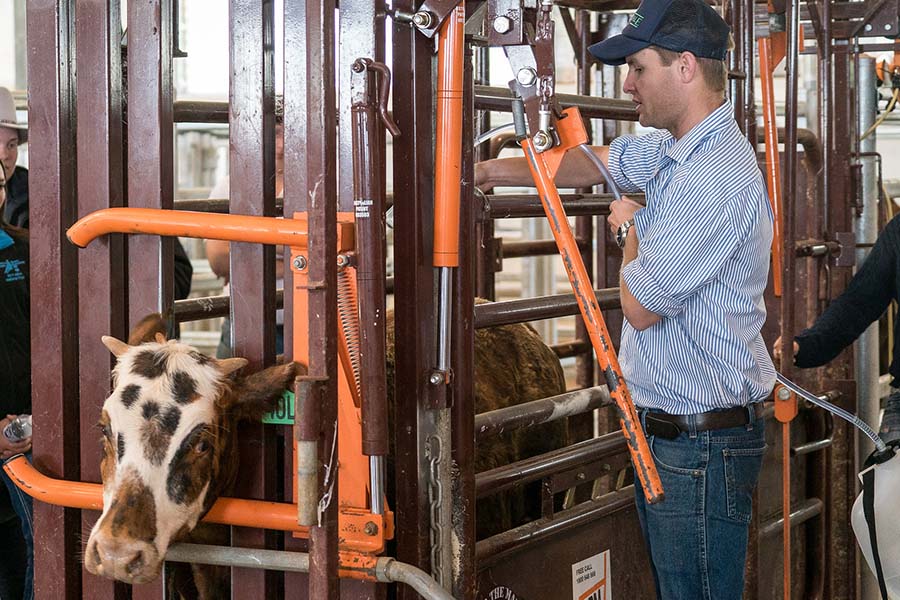Training & Inductions
Anyone planning to work within CART, either as part of their research work or as an employee, is required to have completed an Animal Ethics course, as well as online training for the type of species that will be used and any specific procedures that are planned.
Following the animal ethics course, personnel are required to complete a face-to-face induction of the facilities, and will need to request swipe card access.
Relevant standard operating procedures (SOPs) must be read and acknowledged prior to undertaking certain procedures.
More information on how to book an induction, request swipe card access, book training, and view the SOPs is below.
Any person planning to undertake work within CART is required to complete a face-to-face induction of the facilities in which they will be working. All new users, as well as those who require an additional facility induction, must complete an induction prior to receiving swipe card access to the CART complex and individual facilities. For researchers and their employees, access is only valid for the duration of their active trials (plus an extra week). For teaching staff, access is valid for the day(s) the facility has been booked. If you have not yet completed an induction, or if you require swipe card access prior to a trial start date or teaching day, please contact the CART Director. Any relevant standard operating procedures (SOPs) must be read and acknowledged prior to undertaking related procedures at a CART facility. This will be discussed at your facility induction. A register of CART-specific SOPs is maintained online, along with read and acknowledge documentation. To complete Read and Acknowledge documentation, please visit the CART SOP Register and enrol using your UNE email address. UNE Animal Ethics Committee SOPs may also be relevant for researchers carrying out animal-related procedures Users must complete Read and Acknowledge documentation for any relevant SOPs as advised by senior researchers or CART Management. Please note it is the responsibility of Principal Investigators to ensure their research staff have read and acknowledged all relevant CART SOPs.

Book training (UNE login required)
Anyone planning to work with animals, either as part of their research work or as an employee, is required to have completed an Animal Ethics course, as well as online training for the type of species that will be used and any specific procedures that are planned. Online training must be completed by all persons listed on a research application prior to the AEC granting an Animal Research Authority.
Once online training is completed, assessment of competency is required before that person is permitted to work with animals unsupervised. Prior to competency assessment, student researchers and employees must be supervised by a senior researcher, the UNE animal welfare officer, an approved CART technical officer, or a registered veterinarian.
Contact animalethics@une.edu.au to enrol in the UNE Animal Ethics Course Moodle site.
Contact the UNE Veterinarian & Animal Welfare Officer to enrol in species-specific training or to undertake competency assessment. Species-specific training that is offered can be viewed below: Modules include: Modules include: Modules include:Species-specific training

